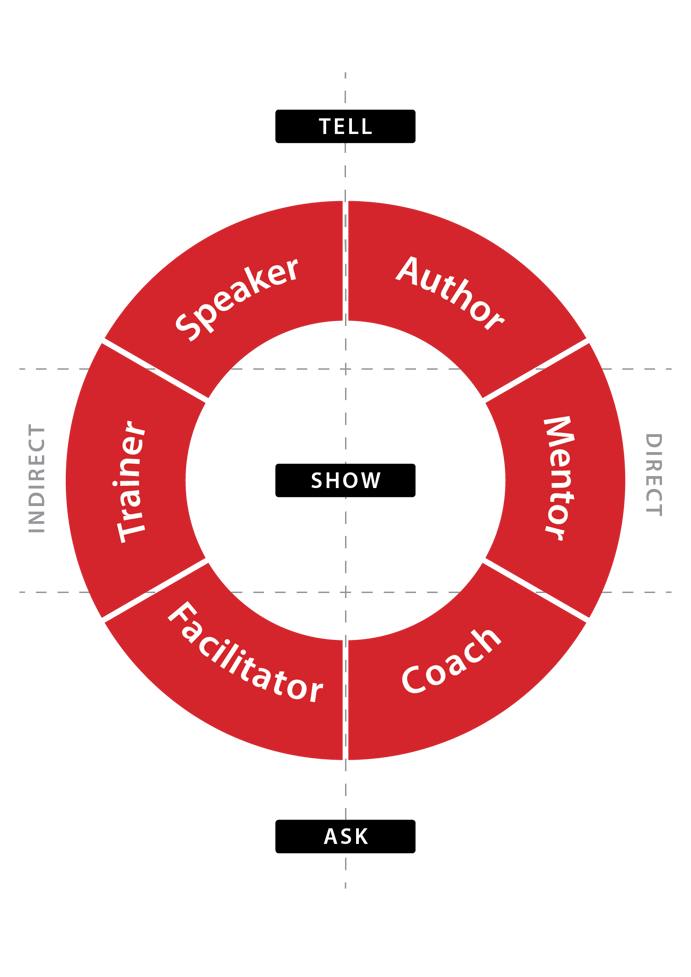As part of the thought leaders practice strategy we teach the six modes of delivery. You can read about these in detail in any of our books on thought leadership. Essentially these modes express the three elements of discourse being declaration, interaction and questioning; what we stylise as Tell, Show and Ask. This visual gives you an overview.

I bring this up at the moment to share the importance of diversity in your mode selection, especially in these times.
Don't get caught up on being a speaker, a coach or any of the six primary modes. Don't get caught up on how you do each of these either, for example paid professional speakers might get paid $5,000-$15,000 a speech and yet some speak for no direct fee, instead creating great commercial opportunities off the back end of the presentation.
This last year those who only delivered their knowledge and insight by getting on planes, crossing boarders and speaking at gatherings of 200 people or more have seen their commercial offerings decimated. Meanwhile, those who offered coaching to individuals had already made the move online and felt the commercial impacts of covid as a bump.
Inherent in what we teach is not only that diversity is commercially smart its also shown itself to be super relevant over the last 12 months living with covid-19.
We teach thought leaders to Specialise and position via message not method. And to focus on but not be defined by their market. This results in a strategy that is robust and sustainable in turbulent times.
Join our upcoming discovery session to find out more about our programs and ask any questions that you may have.
Matt Church
Founder